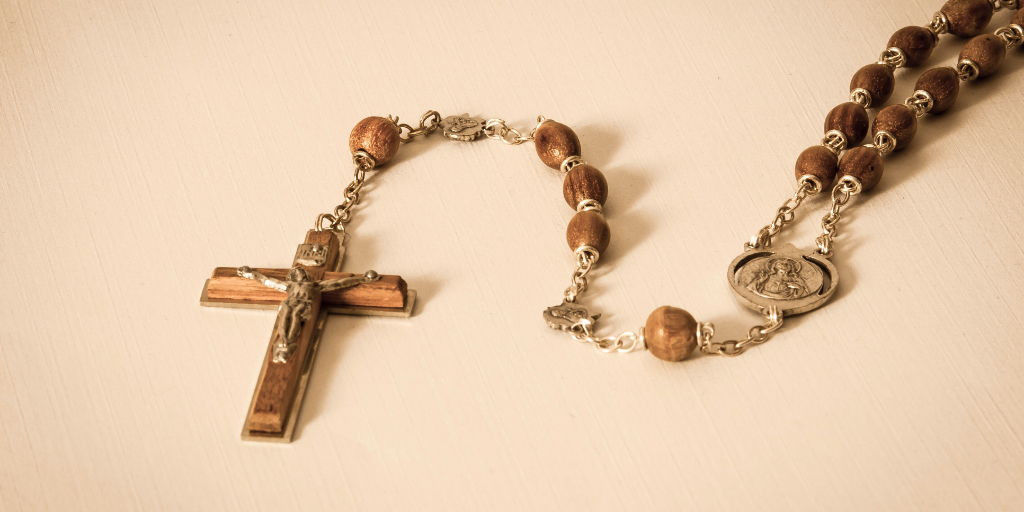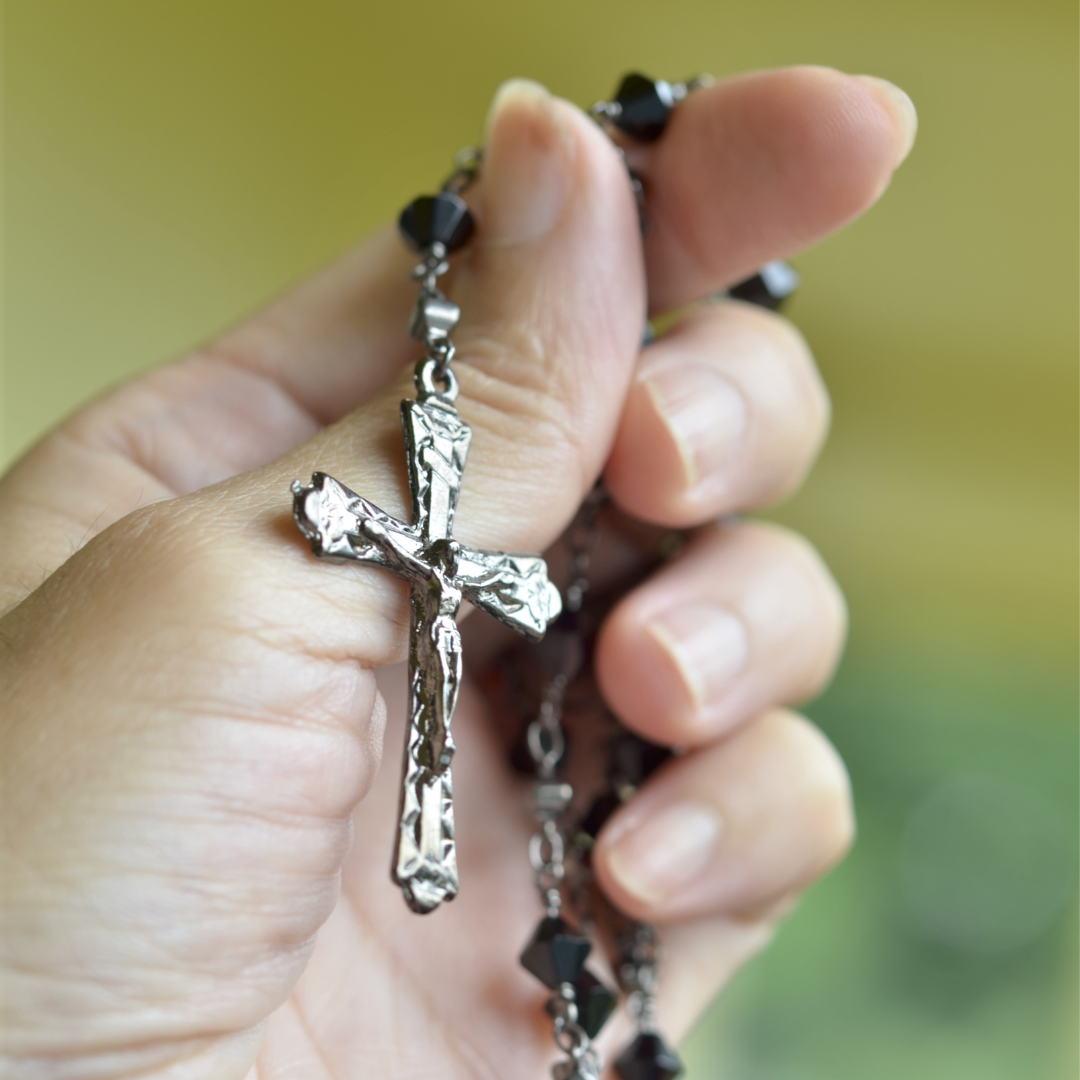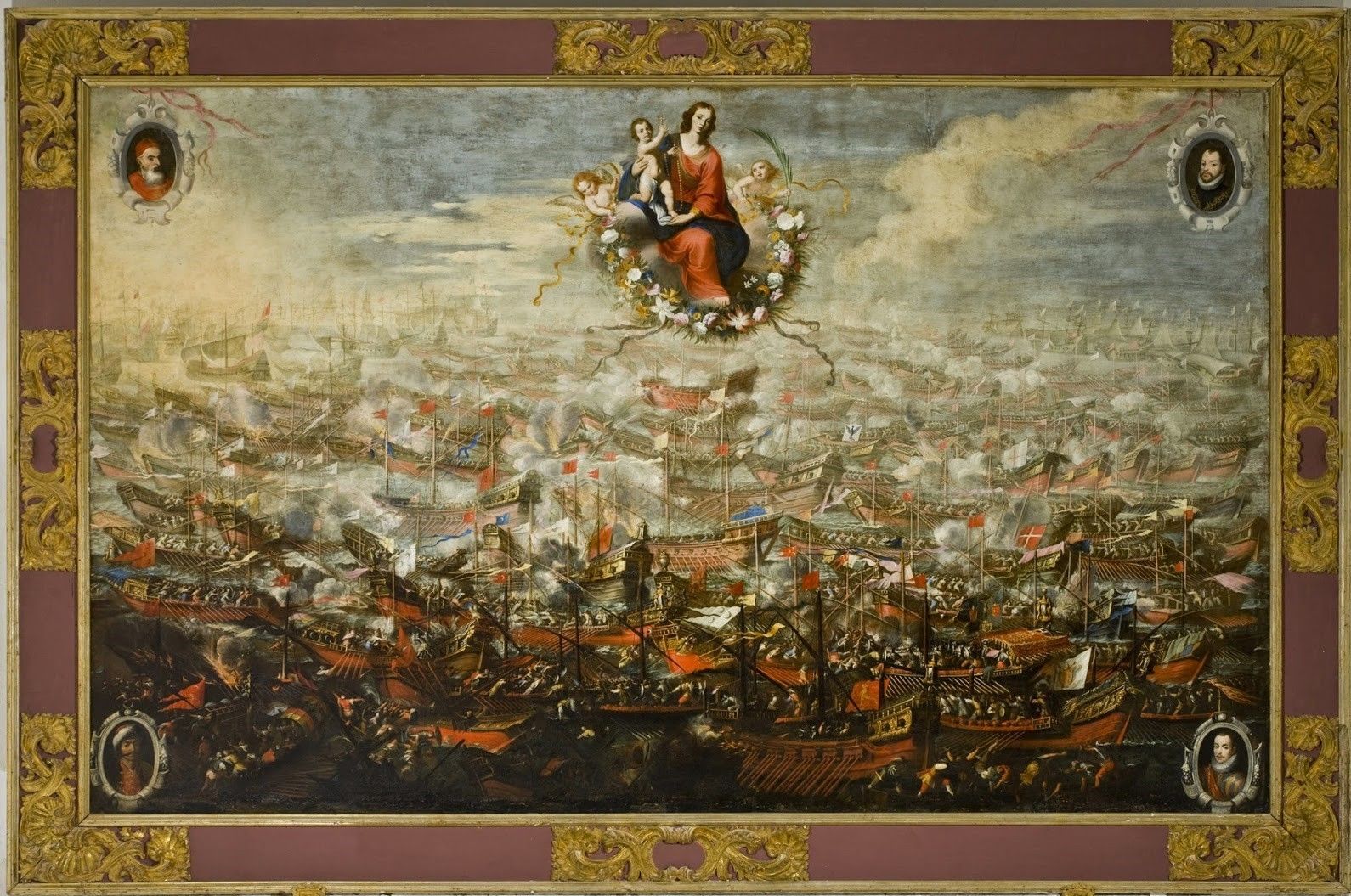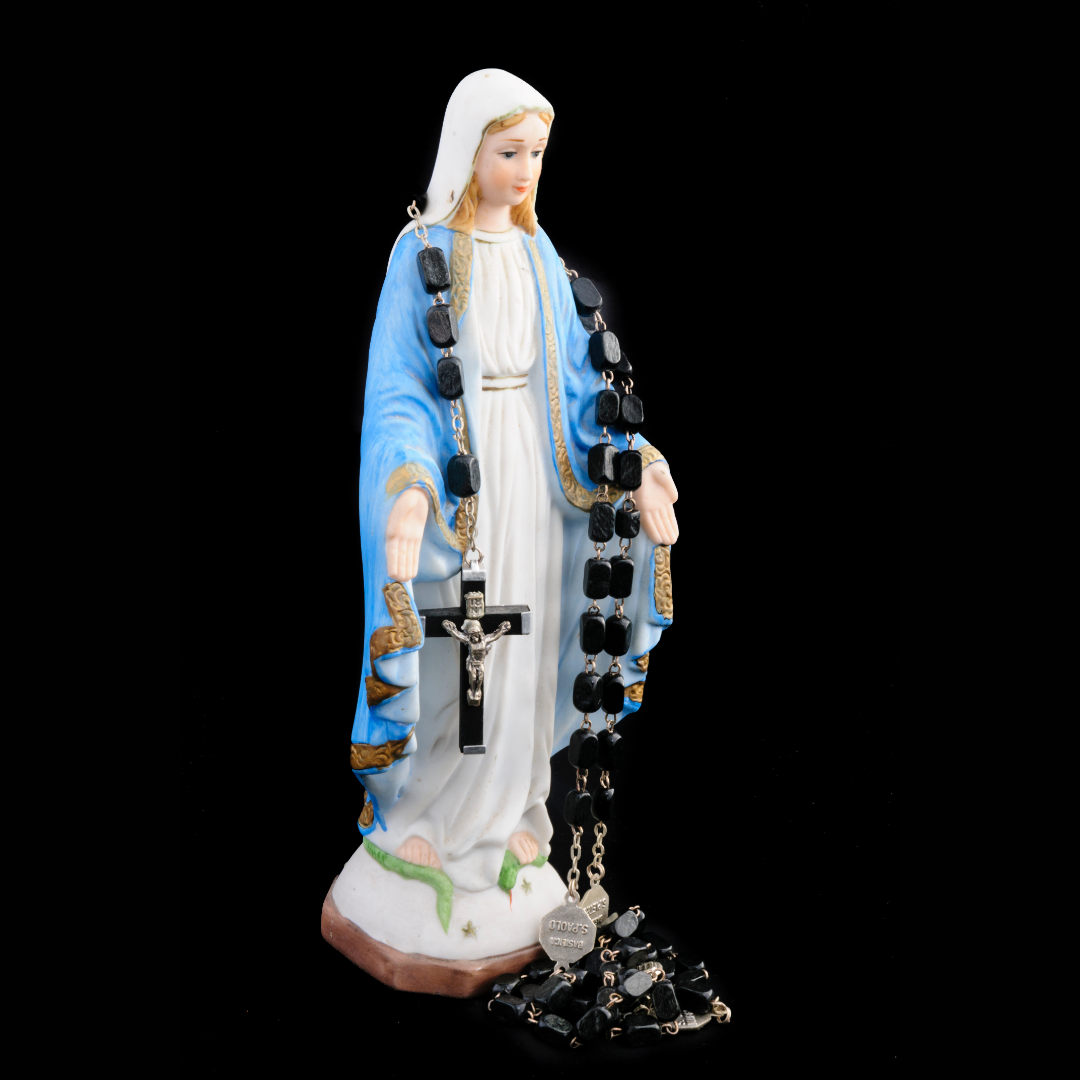
Why Is the Rosary Important?
family prayer | praying the Rosary | how to pray the rosary
Catherine Mendenhall-Baugh discusses the Catholic tradition and history of praying the Rosary.
If someone were to say to you, “Let’s just take a few moments to stop and say 165 prayers while contemplating a special need going on in our lives, or even all the needs going on in the world.” I’m not sure that you or anyone would agree to participate in this kind of exercise. Yet, thousands around the world do exactly that when praying the Holy Rosary. Just what exactly are they hoping to achieve by this and why is it important?
The Rosary is important because meditating on the various events in salvation history and asking God how to apply them in our lives is at the core of our relationship with God. It is important because Our Blessed Lady, herself, came from heaven and asked us to unite ourselves with her Son through this prayer each day. But why?
We know it is one of the most celebrated of prayers said by Catholics used to implore Mary for her intercession and blessings. (Christine Warner)
My mother, Dorothy was a strong believer in the Rosary. She passed this down to her children. Any life event of any consequence started with a Rosary in our home. As a child, I can remember if there was a crisis going on in our family, she would gather us together and ask us to say the Rosary with her.
The prayers said in the Rosary include the Our Father, the Hail Mary, the Glory Be; as well as the reciting of the mysteries before each decade; these are as fresh to me now as they were when I was a child.

But is it relevant today to participate in saying the Rosary? I believe the answer is yes!
What exactly is it we are praying when saying our rosary? To begin with, each decade starts with reciting the mysteries of the life and death of Jesus. The Mysteries of the Rosary are meditations on episodes in the life and death of Jesus from the Annunciation to the Ascension and beyond, known as the Joyful (or Joyous) Mysteries, the Luminous Mysteries, the Sorrowful Mysteries, and the Glorious Mysteries. Each of these Mysteries contemplates five different stages of Christ's life. These stories of the life and death of Jesus and His Resurrection are said prior to the recitation of the prayers.
So, why do we choose the month of October to acknowledge Mary and the Rosary?
It may not be obvious how dedicating the month of October to the Holy Rosary is important. But the Rosary—and, more specifically, Our Lady of the Rosary—is credited with victory in a number of the battles that those feasts celebrate. Among these is of course, The battle of Lepanto (October 7, 1571), in which a Christian fleet defeated a superior Ottoman Muslim fleet and stopped the westward expansion of Islam in the Mediterranean.
The Holy League credited the victory to the Virgin Mary, whose intercession with God they had implored for victory through the use of the Rosary. Andrea Doria had kept a copy of the miraculous image of Our Lady of Guadalupe given to him by King Philip II of Spain in his ship's state room. (Wikipedia)
In honor of the victory, Pope Pius V instituted the Feast of Our Lady of Victory, which is still celebrated as the Feast of Our Lady of the Rosary (October 7). (Wikipedia)
In 1883, when Pope Leo XIII officially dedicated the month of October to the Holy Rosary, he made reference to the battle and the feast.

Often during the Rosary, I drift into a contemplative state and sometimes I feel transported to the foot of the Cross, standing beside Mary, witnessing my Savior bearing the weight of my sin. Sometimes I get insight into the meaning of Scripture as it applies to my life. Other times I get a warm glow through my entire body. I would like to think this is the Holy Spirit. It is as powerful as anything I've experienced at an Evangelical event when the Holy Spirit came upon us.
Is the Rosary more about Mary than Jesus?
I've heard it said, "the Rosary is all about Mary." Actually, it is more about Jesus in Scripture than Mary. There are two layers to the Rosary. 1) The physical layer which is the repeating of prayers and 2) the meditation on the "Mysteries" which are scenes from Scripture of Jesus' life. If we take into consideration both these aspects and give equal weight to them both, the Rosary is about 65% about Jesus and 35% a request for prayer from Mary. (88% of the Rosary is directly from Scripture) (CatholicBridge.com)

Pope John Paul II mentioned in his encyclical Rosarium Virginis Mariae (Rosary of the Virgin Mary),
But the most important reason for strongly encouraging the practice of the Rosary is that it represents a most effective means of fostering among the faithful that commitment to the contemplation of the Christian mystery which I have proposed in the Apostolic Letter Novo Millenio Ineuente as a genuine 'training in holiness': 'What is needed is a Christian life distinguished above all in the art of prayer'. Inasmuch as contemporary culture, even amid so many indications to the contrary, has witnessed the flowering of a new call for spirituality, due also to the influence of other religions, it is more urgent than ever that our Christian communities should become 'genuine schools of prayer'. The Rosary belongs among the finest and most praiseworthy traditions of Christian contemplation. (Rosarium Virginis Mariae)
One thing that resonates with me in the prayers of the Rosary is asking Mary to pray for us “now and at the hour of our death.” We ask people to pray for us all the time—imagine asking the Mother of God to pray for you, especially when we are ready to leave this world and meet Jesus. It seems pretty powerful to me. What a great gift we have from our heavenly mother, Our Lady of the Rosary!
Copyright 2022 Catherine Mendenhall-Baugh
Images: Canva; Batalla de Lepanto by Juan de Toledo y Mateo Gilarte, CC BY-SA 4.0, via Wikimedia Commons
About Catherine Mendenhall-Baugh
Catherine Mendenhall-Baugh (Cathy) completed her education in Special Education and English and now works as an Agent in the Insurance Industry. A mother and Grandmother, Cathy grew up in a large Catholic family and has spent the last 30 years as a caregiver for her husband, Jack. She is a cancer survivor, which inspired her to begin writing.

